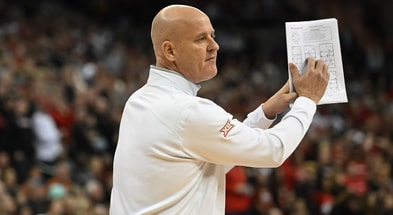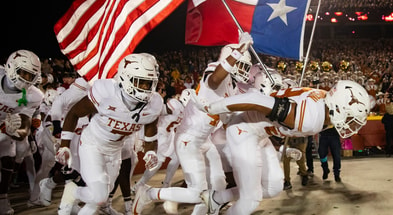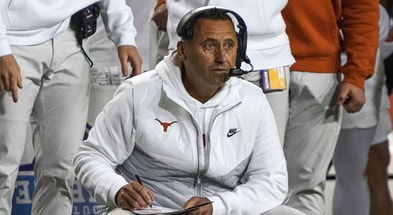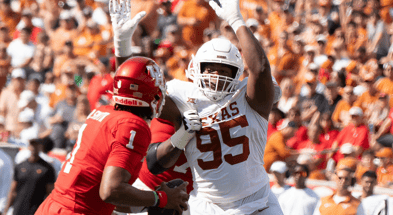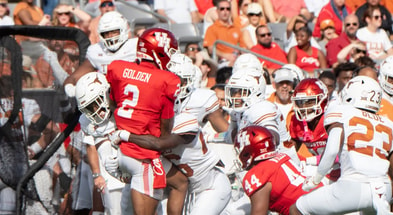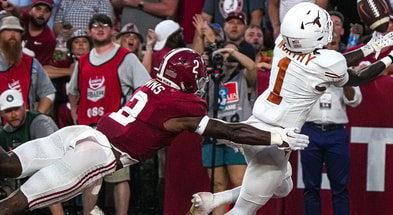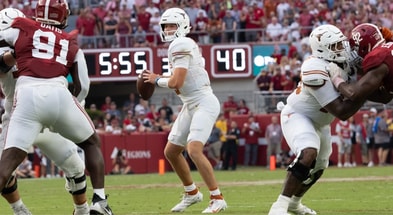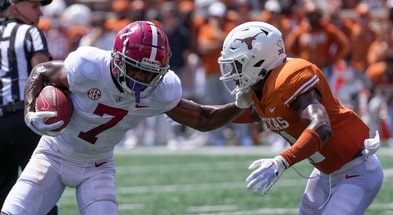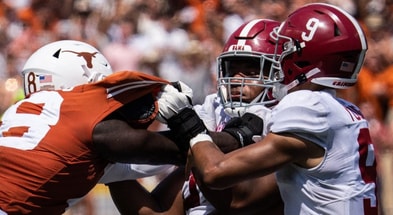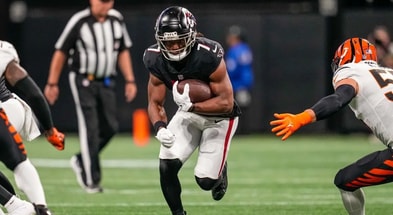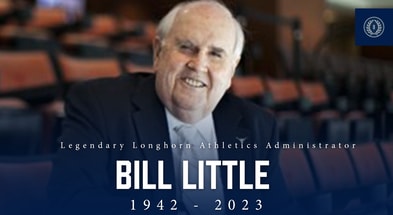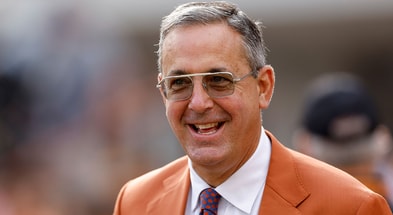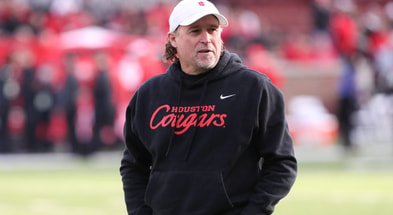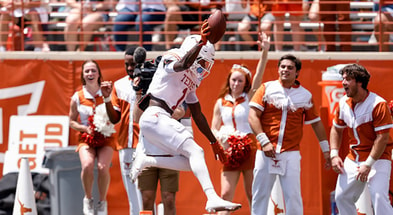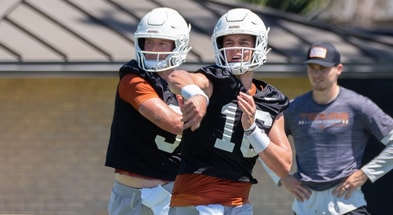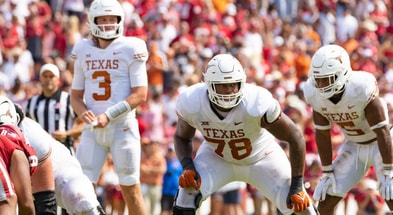Swimming with the Sark
On September 4th, Texas fans will herald the arrival of a new era. The Steve Sarkisian era.
How many new eras can one school cram into a single decade?
Meet the new boss, same as the old boss. Well, not really, but those lyrics from The Who may resonate with far too many Burnt Orange faithful. You can’t blame skeptical Longhorn fans for their exhaustion with new regimes. Over the last decade, they have seen more reboots and baseless hype than all Marvel movie marketing efforts combined. To put things in context, consider this: from 1957 to 2013, Texas football had five head coaches. That’s one new head coach about every 11.5 years. From 2013 to 2021, Texas has had four. That’s a new coach about every 2.3 years. That is decidedly suboptimal. There is such a thing as positive turnover, demonstrated by the Miami Hurricanes of the late 1980s through the early 2000s, who had five different head coaches win a total of six national titles, but most of those Miami coaches fled to NFL head coaching jobs or to better pay, not to being the special assistant to the regional manager for the Chicago Bears or a position coach in Jacksonville. Texas has been a poster child for negative turnover, with three fired head coaches in less than a decade. Illustrating the Catch 22 of program building: the program can’t build consistency with constant turnover, but turnover is the only solution for a failed hire.
Solution? Stop making bad hires.
As documented in Paul Wadlington’s annual Texas Longhorn football preview, the 2021 Texas Longhorn Football Prospectus, if you became a fan of Texas Football in 2010, you have experienced exactly one ten win season over that span of time. And that occurred with a 14 game schedule. You have also experienced 60 losses over eleven years. You have likely also screamed profanities that made your dog leave the room and even possibly shattered your remote control off of the “Live, Love, Laugh!” stenciled sign that your significant other makes you hang in the living room. On the positive side, maybe the remote broke the sign and you can replace it with a timeless classic like Dogs Playing Poker or a portrait of you astride a pony in the English countryside.
But what about the eleven years preceding 2010? Texas lost only 24 games, had nine 10 win seasons, won a national title in the greatest college game ever played, and probably would have won another with a healthy Colt McCoy. Aside from the impacts on recruiting, fan morale, and feelings of general irrelevance, Longhorn fan patience with the new boss will wear thin quickly once initial optimism and exuberance fade and Texas registers its first delay of game penalty out of a timeout.
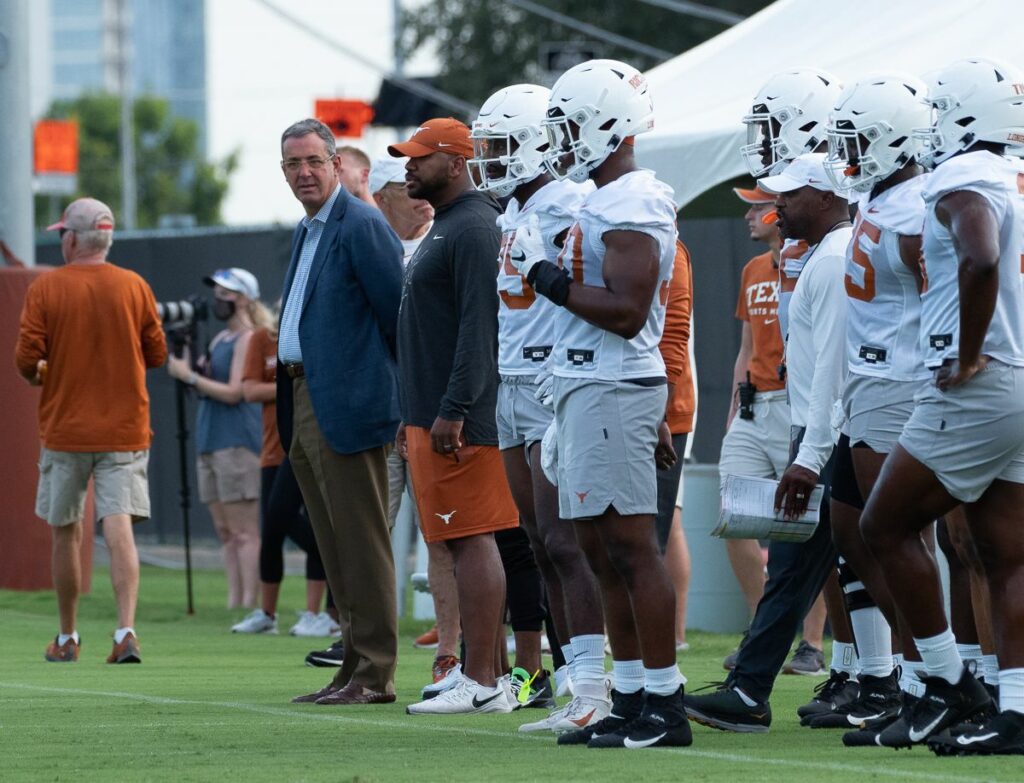
None of that messy recent history is Steve Sarkisian’s fault. Exactly none of it. But it is his problem. The one defining characteristic of real ownership is understanding that things that are not your fault are still your responsibility. And often the only way to completely own a problem is probably just to pretend that it was your fault anyway. Steve Sarkisian is not responsible for Texas football’s decade plus long malaise, but the burden of recent history weighs heavy on the Longhorn head man like Old Spice cologne on an Aggie. Sark can ameliorate Longhorn fan cynicism with optimism, positivity, recruiting wins, being a generally cool guy, and hiring a good staff, but ultimately it all boils down to one thing: winning. Win. Just… win. Or hit the bricks. Oh, and win the right way, not just any way. No college program is totally clean, but Texas can’t drop bags, pay off “uncles”, or start handing out cryptocurrency.
Whether Steve Sarkisian was the second, third, fourth, or fourteenth choice for hire is now irrelevant. Once one gets past the fantasies of hiring Saban, Swinney, and Meyer, it is all preference and recency bias amongst the most-discussed names. Similarly, grading a coaching hire is irrelevant. Sarkisian is an A hire! Sarkisian is a disappointing C+ hire! Who cares? It’s media nonsense crafted to fill up the 23 hour dead space of 24 hour news cycles. A head coaching hire is a pass/fail class that lasts years and we haven’t graded a single test. Remember when Jim Harbaugh was an A+ hire at Michigan and Pete Carroll was an embarrassing D hire at USC?
The Thinking Texas Football preview has long advocated the importance of a trait hire. It’s more about who the candidate is and how they lead, not checks in the resume box, lengthy whiteboard expositions, or recruiting connections. As the great Alex Gibbs (NFL offensive line guru) once said about “genius” coaches: “I don’t care what you know. You’re not playing. What can the guys on the field execute?” Fit is everything. In the brilliant No Country For Old Men, Anton Chigurh chides his crooked employer, who has hired multiple parties to find missing drug money: “That’s foolish. You pick the one right tool.” Texas needs the one right tool. And if that one right tool can put a captive bolt stunner cattle gun to Oklahoma’s head in Dallas every October, all the better.
Sarkisian does have a deep resume, particularly for his age (47), but fans should focus more on what he learned on his journey than his preferred method for attacking Cover 2 back in 2007. Football evolves and the most successful coaches are the ones who evolve with it. Sark is 47-35 as the head man at his other college stops. That entirely mediocre record is worth marking, but it’s also worth noting that this isn’t a static world and context matters. The most important takeaway is not what he did, but what he learned from it. All coaches have had varying results in a variety of places unless they are the rare true Golden Boy. Nick Saban had numerous warts when he was hired from Michigan State (a forgettable 34-24-1 record in East Lansing) to LSU, failed outright with the Miami Dolphins in the big boy leagues, and had a terrible first year in Tuscaloosa. Things worked out OK for him. We shine up a resume to feel good about a hire, then we recast it critically when the coach starts to fail. The most realistic approach is to acknowledge that most coaches have been fired or failed somewhere, for reasons in and out of their span of control. Most have been in a bad situation. How did they deal with it? Be very leery of any head coach who has not had to deal with professional setbacks. In their absence, how else can one demonstrate resilience, evolution, or character?
Sark certainly went all in on testing that concept. Never trust a man who doesn’t have a limp.
Texas needs someone who can set a broad program direction, teach and enforce a vitality curve, and establish and build the principles to get there. If he also happens to be a wizard offensive coordinator who can make the white board O’s dance all over the X’s, all the better. If Sark recognizes that, he will succeed wildly. If he defines himself as an offensive coordinator with some head coaching duties, he will not. Staffing is paramount. By now, anyone who thinks that any new head coach will hire a random array of the best national assistant coaches is delusional. They’re going to hire men they know and have worked with, that come recommended by people they respect, or that they have coached against. Sarkisian, unlike his predecessor, has a much broader worldview and perspective engendered by bigger coaching trees, multiple stops, and a variety of big program exposures (BYU, USC, Washington, NFL, Alabama). He has a much better and deeper Rolodex (younger readers: iPhone contacts) but he still has the comfort instincts of any coach. He will have to fight himself to enforce that vitality curve.
Former Oklahoma defensive coordinator Mike Stoops was legitimately put forth as a potential hire because of Sark’s familiarity with him from their shared time together in Alabama. Several people worked hard to let the administration and Sarkisian know that this was a no-go for reasons beyond the fact that Stoops was a failed defensive coordinator and always looks like he is trying to pass an avocado pit. To Sark’s credit he took on that information – or at least read the room – instead of making it a power struggle. A struggle he could win, but that would cost him capital down the road. Sarkisian is already picking his battles. That is a good sign. And a contrast to Tom Herman, who seemingly never met an ally he could not alienate.
Before Sarkisian was the media’s fair-haired boy for his brilliant offenses at Alabama and his masterful game planning in the national championship game victory over Ohio State, Sarkisian had to come out the other end of public humiliation and seeing his personal and professional life utterly fractured. That sort of humbling – a long stare into the abyss with toes balancing on the edge of a pitch black chasm- can be a real impetus for growth and wisdom if one comes out the other side with humility instead of self-pity. Particularly if a man can take ownership of the things that were his fault and, paradoxically, even take ownership of the things that were not.
So how could Sark fail at Texas?
Every coach at Texas fails the same way, differently.
They can’t evolve. And they don’t understand that they are the root of their problems. The man in the mirror has inflicted more losses on football coaches than any opponent on the field. Perhaps Steve Sarkisian may have already exhibited the most important quality for a head coach at Texas: the capacity for change.
This essay came from Paul Wadlington’s Thinking Texas Football Longhorn preview. Get it online wherever you buy your books. Cover photo by Will Gallagher for Inside Texas
